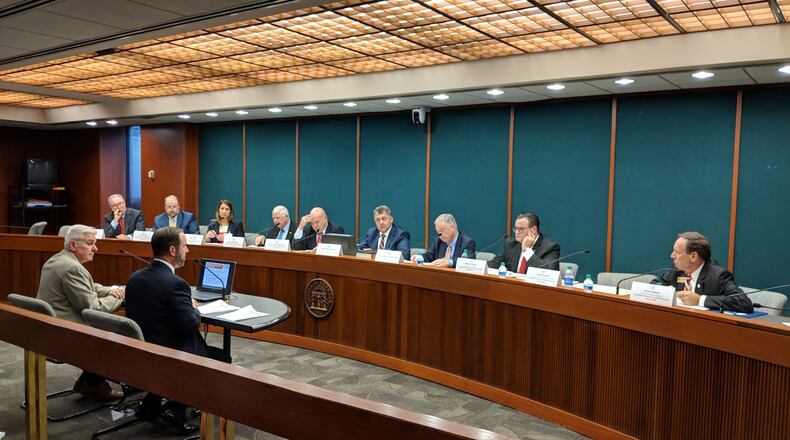When Steve Gooch was a kid growing up on a poultry farm, he got the whole summer off from school, but over the intervening decades he’s watched the start dates “creep back.”
As the majority whip of the state senate, Sen. Gooch, R-Dahlonega, can ask why school starts well before Labor Day.
Channeling concerns about vacation planning and energy costs for hot buildings, the father of three boys in public schools helped establish the committee he is now leading to probe the issue. The question it will try to answer, beyond the ever-moving start date, is whether the state should mandate a calendar for all 180 school districts.
Aside from redistricting, few issues incite the passions of parents, and voters as much. It also touches the political live wire known as “local control.”
At its first hearing Tuesday, Gooch’s committee didn’t get a definitive answer about why summer break has shrunk to two months. Those who testified, including state education officials and teacher advocacy groups, weren’t experts in that area.
“We have zero authority over the development of school calendars,” said Matt Cardoza, an assistant policy director for the Georgia Department of Education. Policy director Allan Meyer said the department leaves calendar decisions to local school boards, but said they must time their school year around testing.
The mandatory state standardized tests, known as the Milestones, must be given sometime from early April to the middle of May. High schools also must consider Advanced Placement tests.
Local control was the rallying cry behind one of Gov. Nathan Deal's biggest political defeats. In 2016, voters rejected his proposed constitutional amendment to let the state take over "chronically failing" schools. Even Republican-led school boards openly opposed his Opportunity School District.
The Professional Association of Georgia Educators, the state’s largest teacher advocacy group, put a poll online last week, and about 80 percent of the 18,000 respondents said they wanted calendar decisions made locally. “It’s been my experience that people love local control,” said Matthew Pence, an attorney for the group.
Charlotte Booker, president of the Georgia Association of Educators, another advocacy group, said the committee seemed more focused on the needs of industry than of schools. “We are more concerned about whether our children are being educated,” she said, noting that teachers use the short mid-semester breaks that come with a shortened summer to develop their teaching plans. She countered a committee concern about dangerously hot school buses by saying the state could have air conditioning installed. The committee responded with concerns about the cost.
The Georgia PTA, which helped sink Deal's constitutional amendment, said Georgia, with 1.8 million students, is too diverse for one state calendar. Local leaders are in a better position to judge what suits their community, said Diane Jacobi, the group's legislative liaison. The mother from Fulton County questioned why the issue was even being raised, saying that class sizes, classroom technology and teacher recruitment are more important.
“This is a problem of privilege,” Jacobi said. “We are talking about a very select group of families when we talk about vacations.”
Besides the senators on Gooch’s committee, there are several political appointees, many of them representatives of the tourism industry. One senator noted that a thriving industry means more tax revenue for schools.
When asked why he co-sponsored the resolution that created the committee, Gooch cited air conditioning costs for school buildings when they have to open in August, the timing of family vacations and the needs of the tourism industry, which must cater to visitors from states where school starts later.
“This committee isn’t driven by tourism, but we’re looking at it,” he said. The group has until Dec. 1 to report its findings, a month before the General Assembly returns.
About the Author
Keep Reading
The Latest
Featured


